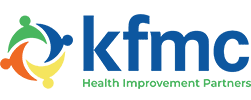Infrastructure Development
To implement health equity throughout your organization or program, it is important to infuse health equity throughout each step of the process. This page provides resources to help your organization operationalize health equity interventions, including health-related social needs screening tools.
Food Insecurity Resources
Kansas Food Source — Food Resources in Kansas
- Feeding America
- Screen and Intervene: A Toolkit for Pediatricians to Address Food Insecurity (PDF) — American Academy of Pediatrics and Food Research & Action Center
- Leah’s Pantry
- Produce Storage Infographic (PDF) — American Heart Association
Considered most valuable resource
Healthy People 2030
Priority Areas Healthy People 2030 — US Department of Health and Human Services (HHS), Office of Disease Prevention and Health Promotion (ODPHP)
- Use Healthy People 2030 in Your Work — HHS ODPHP
Considered most valuable resource
Language Resources
Providing Language Services to Diverse Populations (PDF) — Centers for Medicare and Medicaid Services (CMS) Office of Minority Health (OMH)
- Guide to Developing a Language Access Plan (PDF) — CMS OMH
Considered most valuable resource
Program Development
Health Equity Technical Assistance — Centers for Medicare and Medicaid Services (CMS), Office of Minority Health (OMH)
- Health Disparities Guide — CMS OMH
Considered most valuable resource
Social Risk Screening
Protocol for Responding To and Assessing Patients’ Assets, Risks, and Experiences (PRAPARE) Screening Tool — The Association of Asian Pacific Community Health Organizations and National Association of Community Health Centers
- Screening for Adverse Child Experiences (ACEs) and Trauma (PDF) — The Center for Healthcare Strategies
- Screening for Social Needs: Guiding Care Teams to Engage Patients (PDF) — American Hospital Association
- The Accountable Health Communities (AHC) Health-Related Social Needs Screening Tool (PDF) — Center for Medicare and Medicaid Innovation
- The Health Leads Screening Toolkit — Health Leads
Considered most valuable resource
Visit our Partners
Definitions
Health disparity
inequities in the quality of health, health care, and health outcomes experienced by groups based on social, racial, ethnic, economic, and environmental characteristics
Health equity
the state in which everyone has a fair and just opportunity to attain their highest level of health
Health-related social needs (HRSN)
an individual’s unmet, adverse social conditions (e.g., housing instability, homelessness, nutrition insecurity) that contribute to poor health and are a result of underlying social drivers of health (SDOH)
Social drivers of health (SDOH)
also known as “social determinants of health,” the conditions in which people are born, grow, work, live, and age that are shaped by the distribution of money, power, and resources and impacted by factors such as institutional bias, discrimination, racism, and more
Resources are being provided as a convenience and for informational purposes only; they do not constitute an endorsement or an approval by KFMC or its partners.






